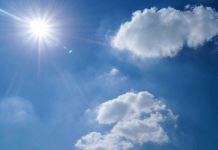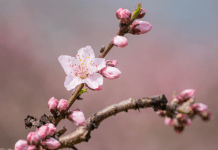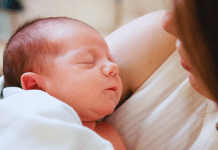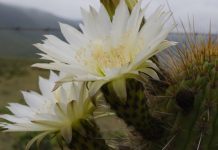Seasonal allergies used to be the bane of my existence. Inevitably, a kind neighbor or fellow shopper would see me with my children and comment, “What an adorable child!” I would proudly turn to my child and note the snot dripping from their nose and as if on cue, my child would probe their finger into their nose. I’d see a micro-look of disgust and a gag on the lady’s face as she would rapidly roll her cart away in fear. This scene would recur every spring and every fall until I too got control of my children’s allergies.
And yes…they are coming again. Seasonal allergies occur in Arizona every spring and fall, and about 10-15% of the population also suffer in winter from the evergreens, especially those that live in our northern areas. As the temperature is drifting down from its record highs, the grass, weeds, and ragweed are getting ready to pollinate again. While many may pollinate less than last year due to the lack of moisture, others do not pollinate based on rainfall. Trees in Arizona pollinate in spring, although the evergreens are the first to pollinate, typically in late winter to early spring. Reaction to animals that we live with can occur all year round and tends to be worse when we close our house up, in summer and a little less so in winter.
Symptoms of seasonal allergies are nasal congestion, postnasal drip, cough, sore throat, itchy, red, runny eyes, sinus pain and pressure, hives, itchy skin, difficulty sleeping and concentrating because of uncontrolled nighttime symptoms, breathing issues for those patients with allergic asthma, eczema, and rashes for those patients with skin allergies, and yes…runny nose and nose picking in children! Blah!
Treatment in young children may be as simple as nasal saline and suction. Be cautious about the size of the device, however, as I tried to use one too small for my infant once and he would rebel from then on when he saw me coming. Instead, you should use an infant device designed for little noses that will not allow you to enter the nose too deeply. When young, an infant’s nose breathing may seem very loud, but this is usually normal with the small size of their nasal passages. Children generally do not react to seasonal allergies until the second season of exposure, usually at about 12 months old. At this point an antihistamine or steroid nasal spray may do the trick. Personally, I am not a big fan of medication and its side effects. It is for this reason, I became an Allergist-Immunologist. I liked the idea of allergy shots, in which you receive shots containing your allergies, first starting below the allergic threshold, and building slowly to a point at which the allergy symptoms are controlled, and many disappear or are tolerable. My children did not like that idea either…a shot is just not a method of compromise. However, I did show them how gentle our nurses are and gave them a choice of medication or a less frequent shot. They are now at a maintenance dose, requiring one shot a month and much happier without the burden of their allergies. Now that they are a bit older, their appearance is more important to them, and a drippy nose is not a great way to start a date. They also appreciate better-quality sleep. Any board-certified Allergist-Immunologist can help you with this.
For more on explanation of the types of allergies, food allergies and other food reactions, such as intolerance and toxicities, see my book, “What’s Eating Our Kids? A Parent’s Guide to Food Allergy, Intolerance, and Toxicity,” available now on Amazon and Kindle, and stay tuned for the next one… “The Air We Breathe: A Guide to Environmental Allergy, Intolerance, and Toxicity.”


















